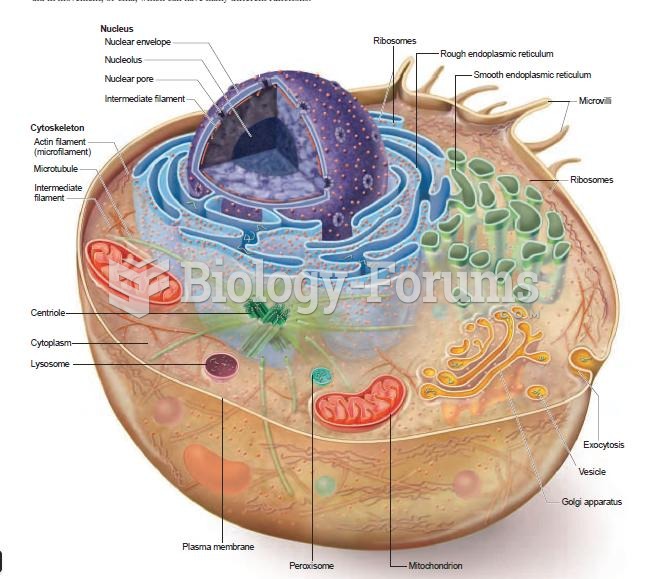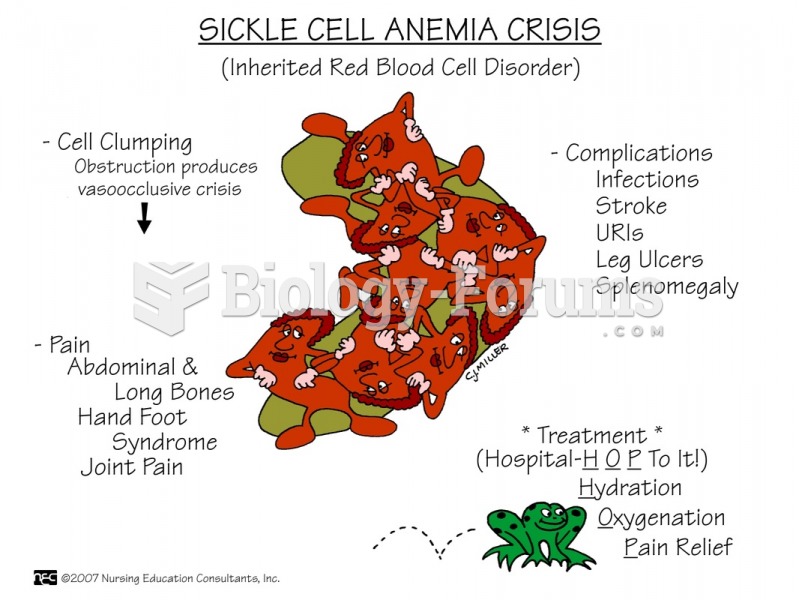|
|
|
More than 150,000 Americans killed by cardiovascular disease are younger than the age of 65 years.
Patients who cannot swallow may receive nutrition via a parenteral route—usually, a catheter is inserted through the chest into a large vein going into the heart.
More than 4.4billion prescriptions were dispensed within the United States in 2016.
The Centers for Disease Control and Prevention has released reports detailing the deaths of infants (younger than 1 year of age) who died after being given cold and cough medications. This underscores the importance of educating parents that children younger than 2 years of age should never be given over-the-counter cold and cough medications without consulting their physicians.
Aspirin is the most widely used drug in the world. It has even been recognized as such by the Guinness Book of World Records.







